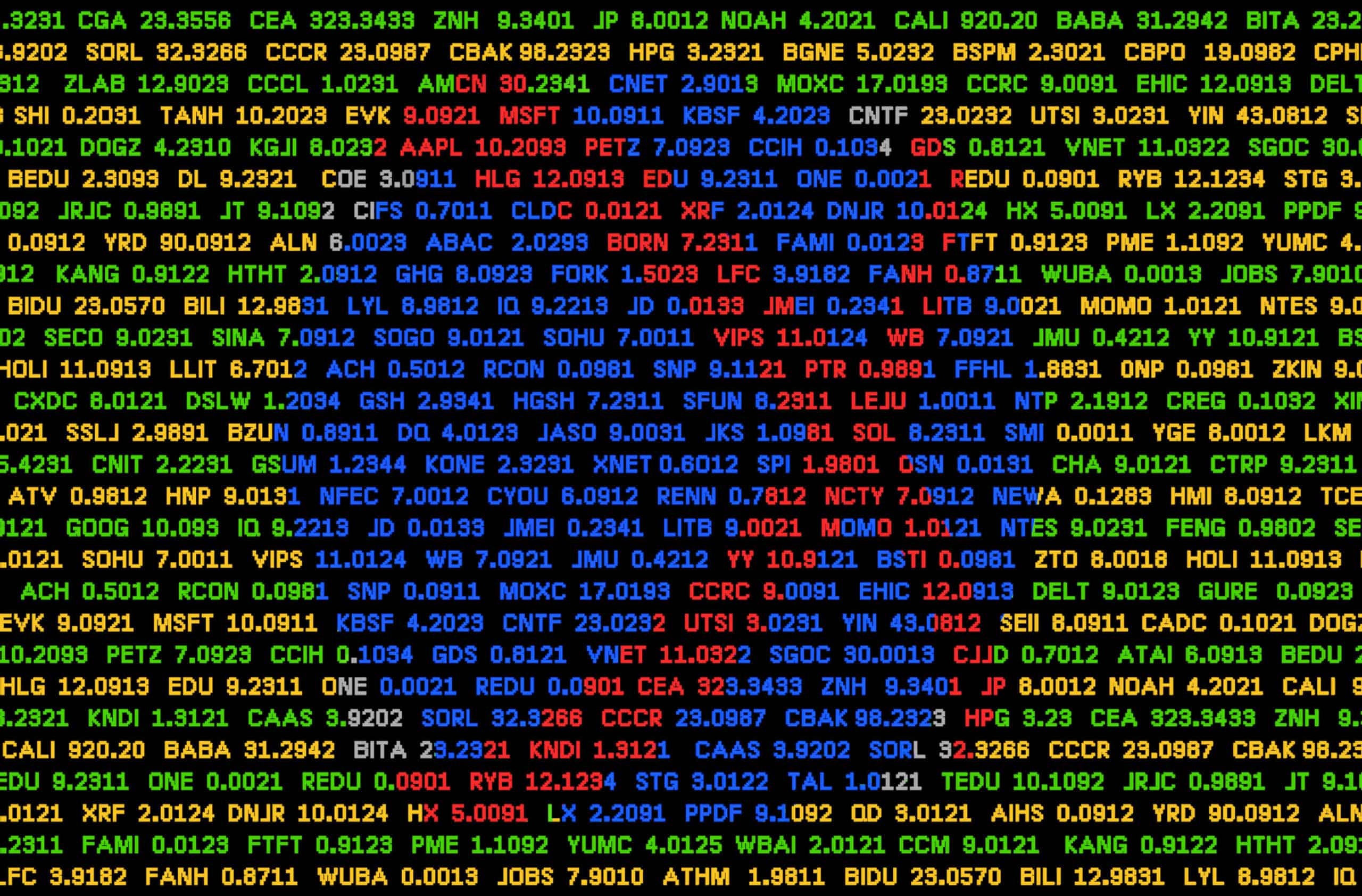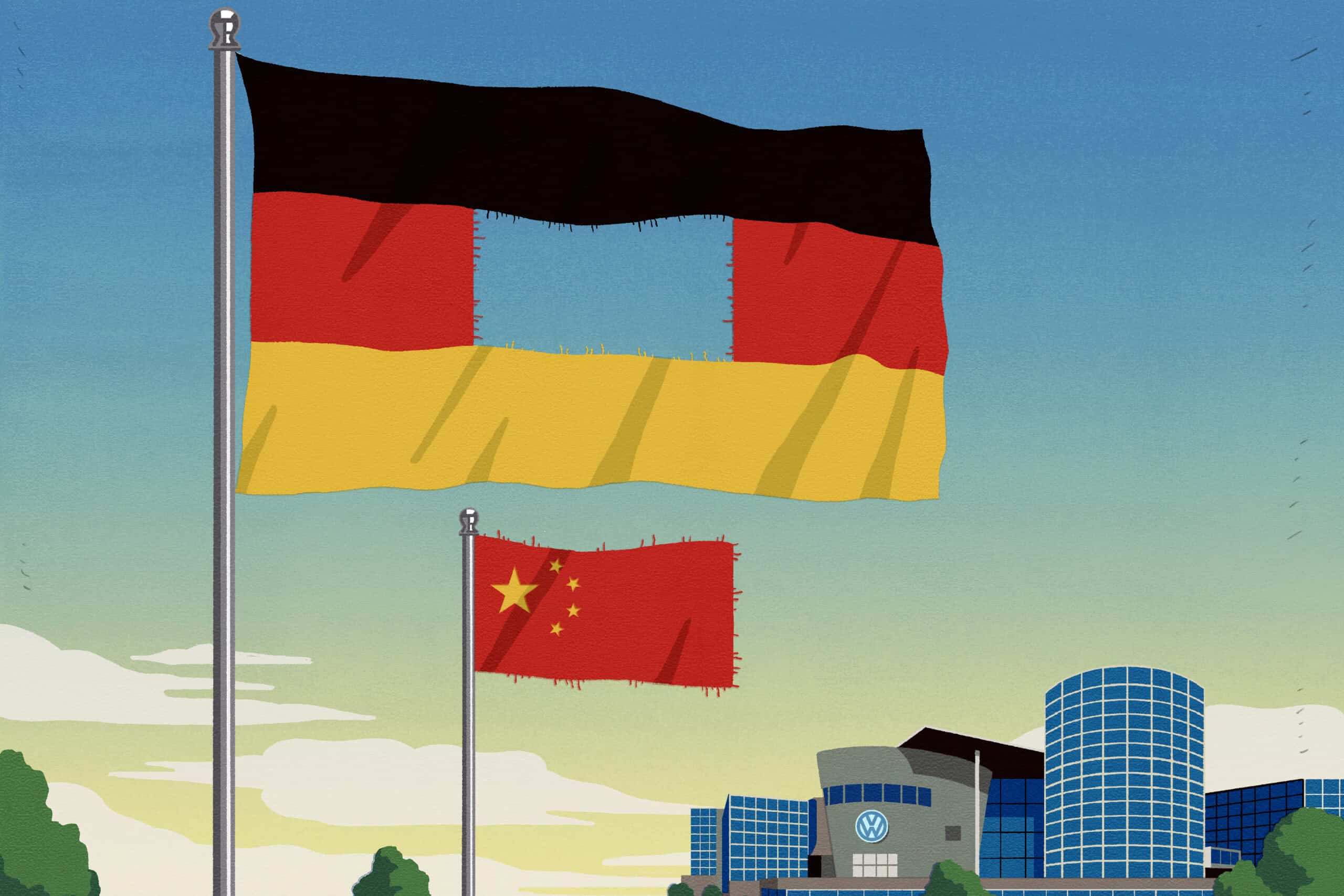
Last September, while protesters in Hong Kong were vandalizing mass transit stations and shattering windows to vent their anger over China’s encroachment on the former British colony, the leaders of Hong Kong Exchanges and Clearing Ltd. (HKEX) flew to London on a secret mission.

Credit: Remy Steinegger/World Economic Forum, Creative Commons
On a humid, overcast morning, Laura Cha and Charles Li, the chairwoman and chief executive of the Hong Kong exchange, entered the headquarters of the London Stock Exchange in Paternoster Square and made an unsolicited, $36.6 billion offer to buy the venerable exchange.
The merger promised to create the world’s biggest financial exchange, a formidable bourse that could serve as an international gateway, connecting East and West. Businesses in China that were hungry for capital would be more easily matched up with overseas investors who were eager for a stake in China’s economic rise.
Li, a former JP Morgan banker and the longtime chief executive at HKEX, would later say that the deal would cause “tidal waves of wealth” from China to flow through Hong Kong and on to London’s shores. Hong Kong, in turn, was poised to capture one of the world’s biggest financial prizes, a stock exchange that dates back to 1571, when it was opened as the Royal Exchange during the reign of Elizabeth I.
In an ironic twist from colonial times, an exchange based in a Chinese territory would own a piece of British power.
But leaders of the London bourse signaled almost instantly that they would reject the takeover offer. A month earlier, the LSE had made its own bold move, agreeing to pay $27 billion to acquire Refinitiv, the global data conglomerate that had once been part of Thomson Reuters. The London exchange released an admonishing letter, saying the “situation” in Hong Kong was too uncertain, and — adding insult to injury — that the Shanghai Stock Exchange “is our preferred and direct channel to access the many opportunities with China.”

Credit: Elias Gayles, Creative Commons
By October, Li had rescinded the offer, and acknowledged that the timing was probably too late: the London Exchange was far into its deal with Refinitiv. But, in retrospect, Li was too late in a more existential sense. As a city, Hong Kong was entering a dramatic crossroads, and a series of political shock waves may have already altered the course of HKEX and its prospects for global expansion.
On June 30, a new National Security Law, drafted by leaders in Beijing, gave the Hong Kong authorities sweeping power over any form of dissent, signaling a threat to free speech and the free flow of information. Britain, Canada and the United States, along with other Western allies, have denounced Beijing’s draconian law, saying it violates the 1997 handover agreement with Britain and buries the concept of “one country, two systems” that was supposed to persist for 50 years. They have vowed to retaliate with sanctions.
Analysts say the new law could undermine the territory’s status as a global commercial hub, one that was built around confidence in the semi-autonomous territory’s independent judiciary and rule of law — things that set it apart from China and its ruling Communist Party.
With Beijing’s grip over Hong Kong tightening, analysts say the fortunes of the city and the future of the HKEX — the world’s most valuable exchange group, worth roughly $60 billion — are far more uncertain than they were even a month ago. And in May, Charles Li announced he will be stepping down as the exchange’s chief executive in October 2021, adding yet another question mark to HKEX’s future.

Credit: Iris Tong, Voice of America
“Foreign companies used to treat Hong Kong as a financial hub for Asia, but with the Security law — and even before the law — the role of Hong Kong has been switching more towards being mainland focused,” said Tommy Wu, lead economist at Oxford Economics. “The Security Law is a catalyst for this to happen because it raises the urgency of this process.”
But a shrinking divide between Hong Kong and mainland China might not be the death sentence for businesses that some assume. Just a fifteen minute train ride from the northern part of Hong Kong, for example, puts you in the heart of Shenzhen, home to some of the world’s biggest and most innovative tech companies.
Romnesh Lamba, the co-president of the HKEX, said in an interview with The Wire, that the current geopolitical tensions are not a major concern for HKEX.
“In this current environment, when you have not gone all the way to sanctions, it’s not a big deal,” he said. If you’re an investor, he added, “Where else would you go?”
Indeed, if HKEX can avoid getting pulled into the fray, it could still thrive, says Gao Xiqing, a former vice chairman of China’s securities regulator and president of China Investment Corporation, the country’s sovereign wealth fund. “Their main challenge is to try to maintain the status as one of the best run exchanges in the world.”
In other words, as the gateway to the massive mainland China market, HKEX has the most to gain and lose.
LOCATION, LOCATION, LOCATION
In some ways, the business of stock exchanges is as much about brand symbolism as ticker symbols. The Nasdaq has its cylindrical LED screen in Times Square, marketing its tech-friendly, growth-obsessed stature. The London Stock Exchange has its coat of arms, complete with a Latin logo, appealing to older, established companies. And the New York Stock Exchange has an embarrassment of symbolic riches with its columned facade, elevated opening bell ceremony, and charging bull — all signaling its reputation as an American institution.
The physical presence of the Hong Kong Stock Exchange, by comparison, is relatively nondescript. Its public events are held in “Connect Hall,” which is advertised on HKEX’s site as “an iconic venue for Hong Kong’s financial community.” The accompanying photo shows an empty room with plain white walls, a grey carpet, and a low platform stage. Apart from a large gong, which is rolled out for IPO ceremonies, the whole operation looks as indistinguishable as a hotel conference room.

Credit: HKEX 2019 Annual Report
But HKEX’s immense symbolic value has nothing to do with photo-ops and everything to do with geography.
“Their advantage is that they are in Hong Kong, which is the bridge between mainland China and the rest of the world,” said Larry Tabb, head of market structure research for Bloomberg.
From the HKEX C-suite offices in Exchange Square, in Hong Kong’s bustling Central district, executives have sweeping views of Victoria Harbor and the mountains of the New Territories in the distance. In the summer, the sun dips below the mountains, where just over ten miles beyond lies mainland China — and the trillions of dollars in wealth that could potentially flow through the company’s platforms.
“The story of HKEX is the story of the opening of China’s capital market,” said Mike Wong, the chief executive of The Chamber of Hong Kong Listed Companies, an association for firms that trade on the Hong Kong Stock Exchange.

Credit: WiNG, Creative Commons
Hong Kong started out with a marginal set of exchanges, including a trading house that opened in 1891 for the British colony’s international community, and a Cantonese exchange across the harbor in Kowloon. But after nearly a century of existing as competing exchanges, the colonial government unified Hong Kong’s bourses into the Stock Exchange of Hong Kong in 1986. A trading floor opened that same year: a giant, windowless room outfitted with a red carpet, rows of neat but cramped desks, and more than a thousand brokers, dressed in matching red vests.
In the 1990s, as Britain was preparing to lower the Union Jack in Hong Kong and China began to dip its toes into global capital markets, the stock exchange was there to guide the transition. As part of an experimental program launched in 1993 by Zhu Rongji, China’s prime minister at the time, Chinese companies got permission to list shares in Hong Kong. Tsingtao Brewery successfully piloted the test, raising $115 million and ushering in a wave of listings for China’s biggest state-owned enterprises, which were excited by the opportunity to circumvent China’s strict capital controls and raise billions of dollars from global investors.
“The growth story of Hong Kong is to take advantage of the problems in China,” said Horace Yeung, who teaches law at the University of Leicester. “It has always been the role of Hong Kong to take advantage of weaknesses in China by being a middleman.”
It has always been the role of Hong Kong to take advantage of weaknesses in China by being a middleman.
It turns out being a middleman is quite profitable. By 2000, the stock exchange listed its own shares under the banner of HKEX — whose largest shareholder is the Hong Kong government — the exchange saw its market value reach $1 billion. Soon after, China’s economy took off and HKEX shed whatever identity it had as a Hong Kong exchange and established itself as an offshore China exchange, increasingly dominated by companies from mainland China. As a result, HKEX is sitting on a fortune.
When Charles Li joined as chief executive in 2010, the company increasingly promoted itself as a center of international capital markets. Under his leadership, HKEX modernized, shuttering its outdated trading floor as trades moved online, and rebranding itself to communicate its goal of reshaping “the global market landscape by connecting China with the world.”

Credit: HKEX
In many ways, Li personified the new Hong Kong. After growing up in the Gobi Desert during the Cultural Revolution, he worked on an oil rig in the frigid waters off North China before studying journalism at the University of Alabama, earning a law degree at Columbia University and working at a top New York law firm. By 1999, he was back in China, helping run Merrill Lynch operations, and then JP Morgan’s, by 2003.
“There are not many people who combine the ability to talk to mainlanders in a way they understand, but at the same time . . . speak with credibility to the international market,” said Antony Dapiran, a Hong Kong-based lawyer and author of City on Fire: The Fight for Hong Kong (2020).
Two years into Li’s tenure, HKEX acquired the London Metal Exchange. By 2014, he had worked alongside Chinese regulators to launch the Stock Connect program, which offered a bridge between China’s largely closed economy and global capital markets. The connect allows international traders to invest in the Shanghai and Shenzhen stock markets through the Hong Kong exchange, and it allows mainlanders to invest in some stocks traded in Hong Kong through onshore exchanges. Beijing approved the Stock Connect workaround because it facilitates investment in a closed loop: investors put in money through their home exchange, and when they sell their positions, the money returns to their home account.
It has been the most successful bridge thus far between Chinese and international markets, analysts say. It’s also lucrative: HKEX collects a fee on every trade, and the company made a $1.2 billion profit last year, largely through stock trading fees, of which the Stock Connect contributes a growing portion.
“The Stock Connect is the only real solution for creating a connection between the mainland and the rest of the world, because it’s the only thing mainland officials can easily control,” said Yu-Wai Vic Li, author of China’s Financial Opening: Coalition Politics and Policy Changes (2018). “All the other proposals failed because there were loopholes that let mainland people cash out.”
But while HKEX is adept at working with Beijing, it has still struggled to attract global companies to list in Hong Kong. Many of China’s biggest tech champions, like Alibaba in 2014, spurned it for an initial public offering in New York, where it was easier to list.
So, in addition to planning the London bid, HKEX overhauled its rules in 2018 to attract more tech and biopharma firms. It loosened regulations to allow stock schemes with unequal voting rights, firms to list without having even a dollar in revenue, and issuers to seek a secondary listing. Corporate governance watchdogs opposed the changes, saying they weakened investor protections.
“HKEX has tried really hard to accommodate Chinese tech firms, which has led to more governance risk and has degraded voting rights,” said Jamie Allen, Secretary General of the Asian Corporate Governance Association.
The play worked. When Alibaba completed a secondary offering on HKEX in November 2019, Zhang Yong, Alibaba’s chief executive, announced, “We’re coming home.” The company’s stock rose more than six points that day.
Despite the London embarrassment, ongoing protests, and rising geopolitical tensions, HKEX announced that in 2019 it made more money than ever.
THREATENING SIGNALS, POSITIVE RETURNS
Last Friday, Hong Kong got a preview of what it means to exist under the new National Security Law. That afternoon, the Hong Kong Public Opinion Research Institute, which has been measuring public opinion in Hong Kong for nearly thirty years, released the results of a poll gauging the territory’s climate. More than 60 percent of respondents said the city is no longer free.
Hours later, the police showed up at the institute’s headquarters on the southern edge of Hong Kong island, armed with a search warrant. They copied records and threatened to seize the organization’s computers, which could have interrupted the primary elections for local democratic parties that were held this weekend with PORI’s help.
“Threatening signals are becoming clear,” Chung Kim-wah, deputy chief executive of the institute, told The Wire. “The newly enacted National Security Law is enabling the government to deprive freedom we once assumed normal and guaranteed by law,” he added.
In the weeks leading up to the launch of the National Security Law, the city’s politicians promised that it would only affect a few violent troublemakers committing crimes such as calling for the overthrow of the Chinese Communist Party. The business community, by and large, jumped on board to support it, hoping that the new law’s impact would not reach beyond the realm of independence politics.
But the new law — the culmination of more than a year of violent protests in a city best known for its gleaming skyscrapers and elegant shopping malls — has already had a chilling effect on discourse. There are expectations now that Hong Kong will censor books, the internet, and the press — anything Beijing might deem to be an attack on the Party.

Credit: Studio Incendio,Creative Commons
Suppose, some analysts say, the Hong Kong government — acting on behalf of Beijing — targets research analysts, short sellers or even private bankers working with wealthy Chinese clients? Might negative comments about Chinese state-owned enterprises be deemed a national security threat?
This concern isn’t entirely new. For years, Hong Kong-based research analysts and global corporations have self-censored and worried about offending Beijing. But the new law and the presence of mainland China’s secret police in Hong Kong has now made any email, phone call or communication inside Hong Kong a piece of evidence in a potential national security case.
“Things will be neutered. You can find your data impounded, your money seized. The internet freedoms may disappear. There will be knock-on effects,” said Fraser Howie, a longtime Singapore based financial analyst and the co-author, with Carl E. Walter, of Privatizing China: The Stock Markets and their Role in Corporate Reform (2003). “But the Hong Kong exchange may be the least affected. Remember, money goes after yield, and China will attract money even if there are restrictions on research.”
In interviews with and statements released to The Wire, the leaders of HKEX downplayed the law and said the exchange is still on track to become a global powerhouse. Global investors, they say, will still come to Hong Kong, and perhaps more importantly, Chinese money will exit through Hong Kong.
“In the long run, we believe there is a huge opportunity for that money to start coming out of China and we believe that Hong Kong will be the first port of call for that money to trade,” said Lamba, the co-president of the HKEX.
There are other factors that favor the HKEX as well: its rivals in the U.S. — the Nasdaq and NYSE — are under growing pressure from American politicians and regulators to consider delisting Chinese companies, a move that could push more Chinese firms to re-list in Hong Kong. In fact, in recent months there have been a string of high profile listings in Hong Kong, including Alibaba, JD.com and NetEase — helping the exchange gain in one of its weakest areas: major technology companies from China.
Moreover, in the past decade, the number of stock listings on global exchanges has declined sharply, according to a World Bank study, even though the numbers from China have exploded: in six of the past ten years, HKEX has seen the most IPOs of any global exchange. Indeed, many analysts now say the world of hot startups is a two-horse race between the U.S. and China — which means global investors have little choice but to invest in China, where some of the world’s most promising biotech, software, artificial intelligence and robotic companies are incubating.
The Hong Kong Stock Exchange, in other words, is still the most viable path into China for the vast majority of global investors. Many financial analysts refer to the Hong Kong Stock Exchange as China’s third exchange — or the country’s offshore exchange. Shanghai and Shenzhen are huge and growing, but they operate inside the country, under strict government oversight with capital controls.

Data: S&P CapitalIQ
“Hong Kong has its own currency, markets, and financial system,” an HKEX spokesperson said, “these are separate from, and different to those in mainland China. These institutions and infrastructure support Hong Kong’s role as a key offshore financial center. There is no evidence to suggest that these fundamental elements that make Hong Kong unique will change in the future.”
Indeed, the biggest threat to HKEX, some analysts say, is not that China would draw Hong Kong and the HKEX in closer, but that Beijing may at some point favor its own, domestic stock exchanges and allow global investors greater access to it, giving them the option to bypass Hong Kong.
Until that happens, though, HKEX and Hong Kong’s status as a financial hub seem unlikely to suffer. While it is unlikely HKEX will acquire new assets in the West, like the London Stock Exchange, as national security regulators on both sides of the Atlantic step up scrutiny of acquisitions linked to China, HKEX has plenty of options for growth in its own backyard. After an initial dip in May, for instance, Hong Kong share prices have rallied in recent weeks, and HKEX’s own stock is up 40 percent this year.
“At the end of the day, if this is the only market where people can get exposure to Chinese companies, they will still come here,” says Dapiran, the Hong Kong lawyer. “Investors are going to take that risk, regardless of the security law.”

Eli Binder is a New York-based staff writer for The Wire. He previously worked at The Wall Street Journal, in Hong Kong and Singapore, as an Overseas Press Club Foundation fellow. @ebinder21

Katrina Northrop is a journalist based in New York. Her work has been published in The New York Times, The Atlantic, The Providence Journal, and SupChina. @NorthropKatrina



